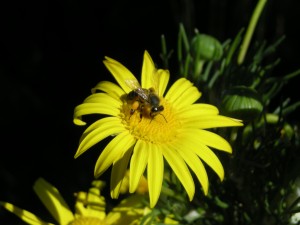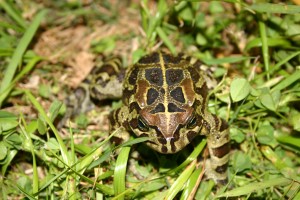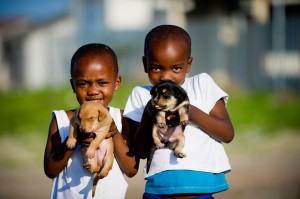 An < eminent professor at Stellenbosch University once told me that at the planet’s present rate of deforestation, habitat incursion and biodiversity loss, our children’s children could have an “extinction of experience”.
This means that tomorrow’s children would be denied the wonder of connecting to and interacting with the natural world, a disconnection that would render them out of touch with what is wild and free. But beyond losing the intrinsic and aesthetic value of different species, tomorrow’s children would be denied the important functional and consumptive benefits that services from nature provide.
Here are some staggering statistics: over the last 300 years the global forest has shrunk by approximately 40%. Since the turn of the 20th Century, the world has lost about 50% of its wetlands. Over the last half-century 60% of the Earth's ecosystem services have been degraded. Some 20% of the world's coral reefs have been destroyed. In the past two decades 35% of mangroves have disappeared. And over the last decade 13 million hectares of forest have been lost through deforestation each year.
An < eminent professor at Stellenbosch University once told me that at the planet’s present rate of deforestation, habitat incursion and biodiversity loss, our children’s children could have an “extinction of experience”.
This means that tomorrow’s children would be denied the wonder of connecting to and interacting with the natural world, a disconnection that would render them out of touch with what is wild and free. But beyond losing the intrinsic and aesthetic value of different species, tomorrow’s children would be denied the important functional and consumptive benefits that services from nature provide.
Here are some staggering statistics: over the last 300 years the global forest has shrunk by approximately 40%. Since the turn of the 20th Century, the world has lost about 50% of its wetlands. Over the last half-century 60% of the Earth's ecosystem services have been degraded. Some 20% of the world's coral reefs have been destroyed. In the past two decades 35% of mangroves have disappeared. And over the last decade 13 million hectares of forest have been lost through deforestation each year.
 In purely monetary terms, ecosystem services deliver a whopping US$21 to US$72 trillion a year in essential services. However, Nature is a life support system, and ultimately we are dependent on living, functioning ecosystems like woodlands, shrublands and grasslands; the biodiversity that exists within them; and the ecological services they provide.
In purely monetary terms, ecosystem services deliver a whopping US$21 to US$72 trillion a year in essential services. However, Nature is a life support system, and ultimately we are dependent on living, functioning ecosystems like woodlands, shrublands and grasslands; the biodiversity that exists within them; and the ecological services they provide.
Also, we have forgotten that since time immemorial the natural world has shaped our evolutionary path, a trajectory that started on the African savanna where our first ancestors appeared thousands of centuries ago. In this way we are as inextricably linked to the wind whispering in treetops, to clouds scudding across a darkened sky, to the deep rumble of distant thunder, or to the sigh of the ocean as it leaves the shore as a leopard prowling a rocky mountain ledge.
Therefore, an extinction of experience would mean that future generations would lose not only wild places and the wild creatures that live within them, the monetary value of ecosystems, and the vitally important services they provide. Tomorrow’s children would lose a profound and enduring human connection – a connection that has sustained our species since the beginning of our time.
 We have reached a crossroads. This momentous moment, and the actions we take in the time ahead, will determine whether tomorrow’s children will live in a world much like the one in which we have evolved. Or whether they will live in an impoverished world that will render them far removed from everything innocent, natural and free. It is up to us to make sure it is the former!
We have reached a crossroads. This momentous moment, and the actions we take in the time ahead, will determine whether tomorrow’s children will live in a world much like the one in which we have evolved. Or whether they will live in an impoverished world that will render them far removed from everything innocent, natural and free. It is up to us to make sure it is the former!